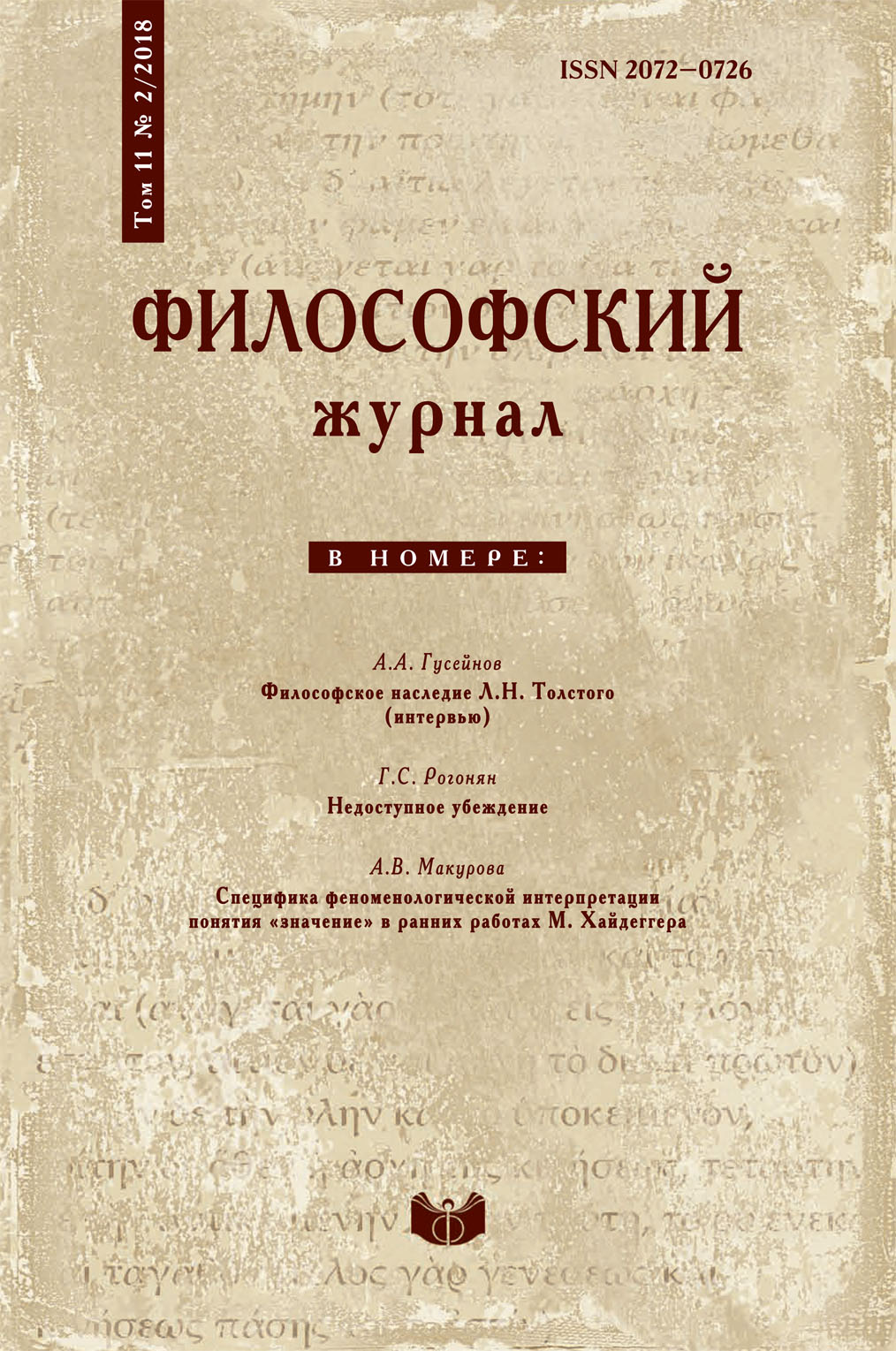Man in the philosophical legacy of Hegel
DOI:
https://doi.org/10.21146/2072-0726-2018-11-2-72-90Keywords:
man, spirit, subject, essentialism, non-classical anthropology, anti-anthropologism, soul, madness, reason, personalityAbstract
This article attempts a new interpretation of the conception of man in Hegel’s philosophical heritage; it also offers a critique of the recent anthropological accounts of Hegel's doctrines. Despite that there exists extensive philosophical literature on this subject, perception of the main tenets of Hegel's anthropological doctrine has changed significantly with the demarcation between classical and non classical anthropology becoming more and more evident. The author submits to a critical analysis the opinion that it was the anthropological argument that served as foundation for Hegel's entire philosophical system. He also points to the immense influence exerted on the evolution of understanding of the role of man in Hegel's legacy, both inside and outside Russia, by Marxist tradition; in Soviet Russia, in particular, it became fairly common among academic philosophers to concentrate their efforts primarily on 'overcoming' the Hegelian attitude within Marxism. Hegel's 'anthropology' has thus caused a significant dissent in the academic community. Doctoral dissertations have been approved whose authors held diametrically opposing views about this problem. Individuality has been plumply found to be the subject of Hegel's teaching even in the passages where the credible presence of any definable personal character is patently impossible. This paper shows that the starting point for Hegel was his dispute with Kant who is believed to be the founding father of philosophical anthropology. In this perspective, Hegel's so-called anti-anthropologism deserves a new critical assessment, with special consideration being made of Russian existentialism. Modern man experiences the situation of an ontological shift, when one feels prompted to reexamine the familiar ideas of man and develop new ones, to reread classical texts and to form new languages and senses with respect to the main agent of changes, i.e. man.






